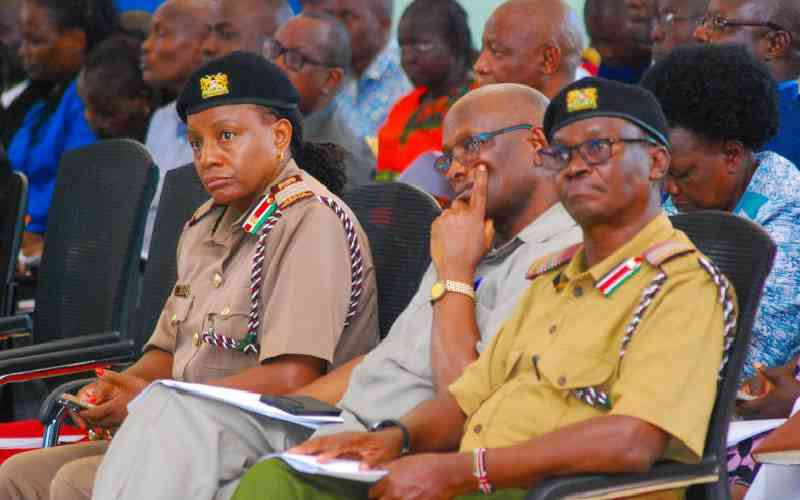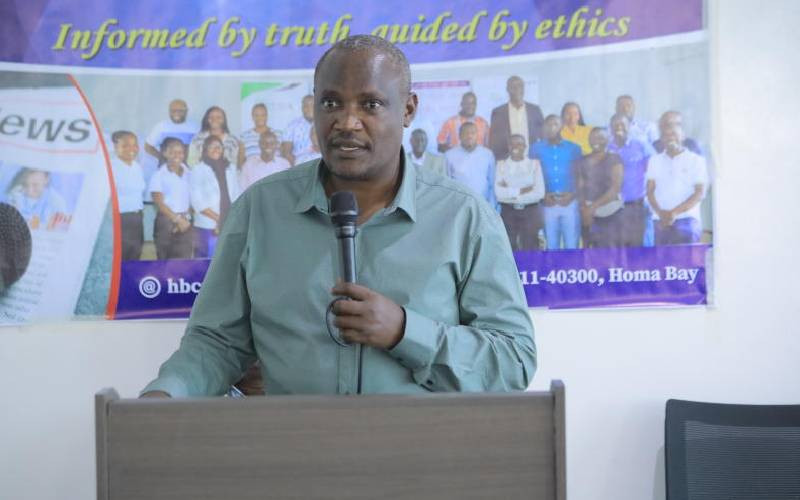State rolls out public participation on village elders policy
Nairobi
By
Okumu Modachi
| Apr 16, 2025

The public can now give their opinions on the government's policy that seeks to officially recognise village elders as part of the National Government Administrative Officers (NGAOs).
This is after the Ministry of Interior, on Tuesday, launched public participation forums on the Draft National Government Village Administration Policy and the Draft National Government Coordination (Administrative Units) Regulations, 2025.
Interior Principal Secretary Raymond Omollo who was represented by Nairobi Regional Commissioner, Katee Mwanza, during the launch at Pangani Girls in Nairobi, said the inclusion of the village elders will help bring government services closer to people.
PS Omollo emphasised that public's input is central to shaping frameworks to improve grassroots governance, service delivery, and national cohesion, noting that governance is a shared responsibility that must be grounded in public involvement and constitutional values.
READ MORE
How KenGen locked out bidder for its carbon credits
Mbadi blames unfair ratings for rising loan costs
Kenya Power boosts customer service with AI tools
Deal or no deal? Why cash-strapped government is awaiting IMF bailout
Reprieve for Guardian Bank and Chandaria in lender buyout row
Co-op Bank wins global award for SME product innovation
KTDA-affiliated firms net Sh679m at tea auction
How rising costs at Mombasa Port are driving up South Sudan imports
Inside MPs' plan to free Kenyans from clutches of rogue lenders
Confusion as Kenyan seafarers denied passes due to lack of NEA certificates
"These two frameworks represent a bold and necessary step toward redefining how Government reaches, serves, and partners with citizens at the grassroots level," he said.
Often the first responders in matters of dispute resolution, public verification, and community coordination, Village Elders have operated without legal backing or compensation.
According to the Ministry, the policy seeks to institutionalise the village elders role within the national governance framework.
Equally, PS Omollo said, the regulations will create coherence to the establishment of Sub-Counties, Divisions, Locations, and Sub-Locations, ensuring these units are gazetted, funded, and functional.
"These reforms will help correct historical gaps and ensure that village structures are anchored in law, well-resourced, and capable of delivering services to every citizen," the PS stated.
He said the framework was developed through an inclusive and consultative process involving memoranda submissions, stakeholder meetings, and inter-agency collaboration and are also aligned with existing laws and policies at both national and county levels.
The Ministry has called on all stakeholders including the public, Nyumba Kumi, civil society, faith-based organizations, and the private sector, to offer honest feedback and engage meaningfully in the process.
The public participation forums were held across other regions, including Uasin Gishu, Nakuru, Garissa, Nyeri, Mombasa, Kisumu, Machakos Kakamega, and Meru.

